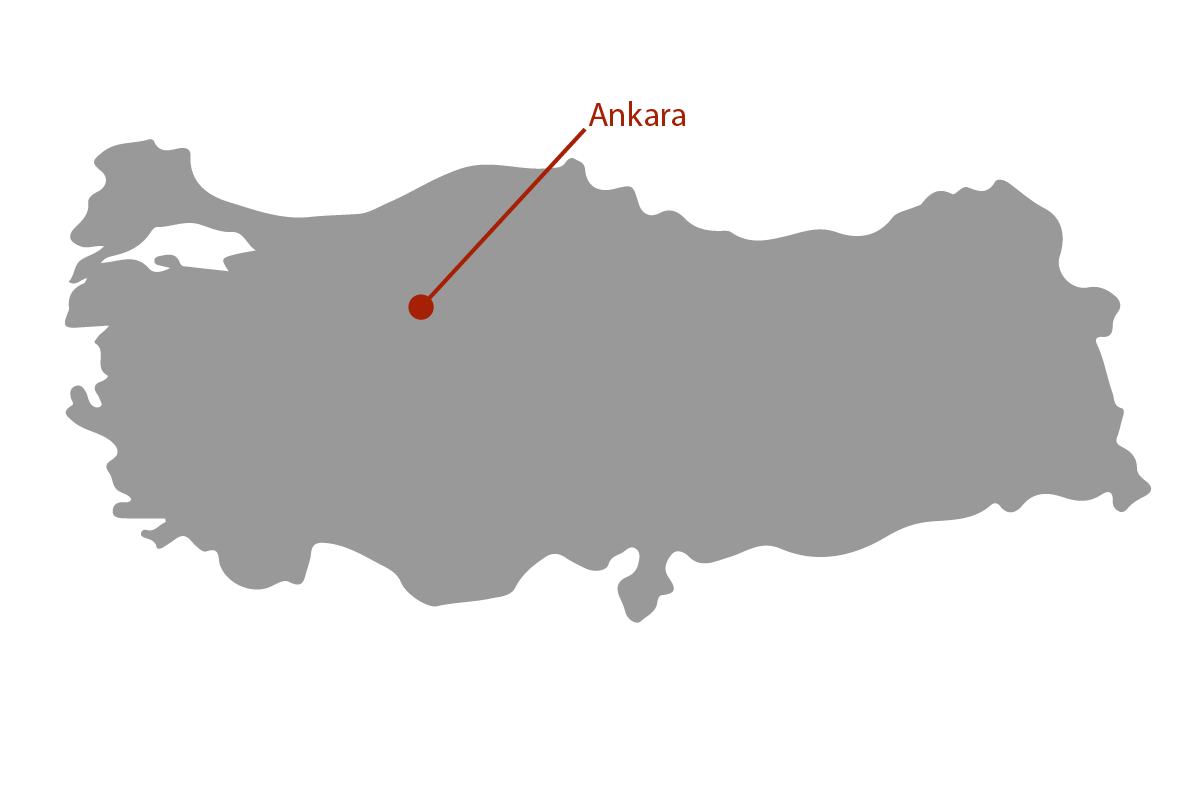2015 marks the 100th anniversary of the ANZAC landings at Gallipoli, Turkey.
Events will be held in metropolitan and regional areas around the country to commemorate the brave ANZAC spirit. Camp Gallipoli have organized camp out events in 6 Australian cities and Auckland, and everyone is invited to attend. There will be entertainment, food, movies and documentaries the night before, and the Dawn Service the following morning.
The largest ANZAC Day commemoration to be held outside Australia will be in Gallipoli. This year, 10,500 Australians and New Zealanders who have been chosen by a random ballot will make the journey to attend.
Our Travel writer Craig has advised that if you will be participating in the Commemoration ceremony at Gallipoli, to be prepared for the minimal facilities and conditions. There are memorials and monuments in the area, however, it’s not a ‘tourist attraction’ under the normal definitions and so is not set up for the large number of people who are expected.
- Be prepared to walk up to 10 kms, some of it on uneven and steep terrain. You will also be standing up for most of the time - there is very limited seating and lots of queues and check points.
- There is minimal shelter and you will not be able to pitch a tent, so you’ll be exposed to the elements for up to 30 hours – the nights will be cold, sometimes dropping to below 0° Celsius, and then the daytime temperature increases very quickly.
- There is no running water or power, very limited lighting, toilet facilities and food vendors.
- Medical support is only provided for emergencies and not for minor ailments. So bring your own medical supplies including non-prescription pain killers as they’re not provided by the onsite health authorities.
So pack lightly but thoughtfully to take into account the weather conditions and facilities and make sure you bring food, snacks and water.
|
Whether or not you’re in Turkey for the ANZAC ceremony, take a trip around this fascinating country and make it a trip of a lifetime.
Turkey as we know it today was founded only in 1923, and yet the heritage of this area goes back thousands of years. Since ancient times, Turkey has been a strategically important location, and various civilizations have left their marks here that can still be seen today.
From the ruins of Troy to the luxury beach resorts, from metropolitan cities to rugged mountains, Turkey is a land of huge diversity, and an absolute pleasure to travel through. Get your passport ready, organise your travel insurance for Turkey, and explore the landing spot of Noah's Arc.
|
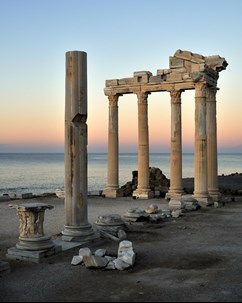 |
| |
|
Travel Highlights of Turkey:
|
The former capital of the Ottoman and Byzantine Empires, Istanbul is the largest city in Turkey and one of its top destinations. Istanbul is located along the dividing line between Asia and Europe, and half of the city is in Asia and half in Europe, though luckily you do not need a passport to pass from one side to the other.
The first place to head for any visitor is the Old City of Istanbul where you will find most of its historical monuments from the stunning Hagia Sophia mosque with its amazing architecture and beautiful mosaics to the stunning Topkapı Palace, which served as the residence of the Ottoman sultans for 400 years.
Close to the Hagia Sophia is where you will find the famous Basilica Cistern, which is the largest of many ancient cisterns beneath the city and absolutely worth exploring.
A good way to explore the Old Town is by walking along the city walls, which are known as Theodosian walls, built in 408 AD. While not the whole wall remains, there are still large portions you can walk on.
|
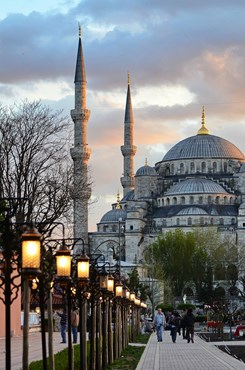 |
| |
|
While you are in Istanbul, also make sure to visit a traditional Turkish bath known as a Hamam. Especially in the Old Town you will find wonderful historical hamams. Another great thing to do is to enjoy a cruise along the Bosporus, and depending on which provider you choose, you may even get to see the Princes' Islands, which are famous for their beautiful wooden mansions.
|
Cappadocia is another breathtaking place in Turkey to visit. Located in Central Anatolia, Cappadocia is famous for its landscape consisting of rock formations that were created through thousands of years of erosion, giving the entire area a moon-like landscape.
Truly spectacular in this region are the underground cities and houses built into Fairy Chimneys. The underground cities go back thousands of years and some of these are up to eight stories deep accommodating up to 20,000 people.
|
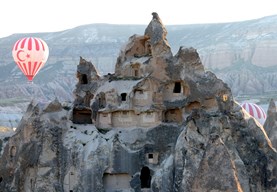 |
| |
|
They are truly astonishing, and a must-see while you are in Turkey. Remember to arrange travel insurance for Turkey before setting off on your explorations underground.
|
Aegean Turkey is where you will find most Greek and Roman ruins, as well as some very pleasant seaside towns.
Bodrum is a wonderful seaside town that used to be home to one of the Seven Wonders of the World, however now only impressive ruins remain. Bodrum is quite a trendy city with a good party scene in summer, as many international travellers come here to enjoy the beach and the weather.
|
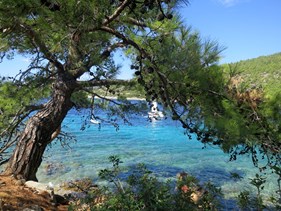 |
|
However, the site you want to head to is further inland - Pamukkale, a UNESCO World Heritage Site. The hot springs here go back to the 2nd century BC, and they are beautiful.
Due to a high chalk content, the cliffs around the springs are snow white, which is why this place is called 'cotton castle'. You can walk around the cliff pools and there is a mineral hot spring that you are allowed to use above the waterfalls.
|
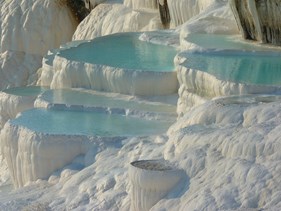 |
| |
|
Close by is a smaller site that also offers mud baths should that be more your taste. While you are in the area, do consider going to Aphrodisias, which has some of the most impressive Roman ruins in Turkey and it is also a lot less crowded than the more famous Ephesus.
|
In Southeastern Anatolia is the city of Urfa, which is probably one of the most underrated cities in Turkey.
This city is where East meets West, and a short walk through the city confirms its amazing cultural diversity. Urfa claims to be the birthplace of Abraham, and his birthplace has become an important pilgrimage site for Muslims.
Here you will also find the world's oldest temple: Gobekli Temple, which dates back to 9000 BC, which means it existed before farming practices started spreading.
|
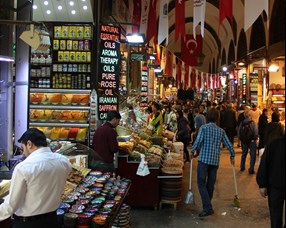 |
| |
|
The bazaar in town is absolutely fabulous and well worth browsing around and haggling a little bit, which is an important part of life in Turkey.
Turkey is quite a safe place for travellers, and apart from some scams and pickpockets, there is not much to worry about. As a precaution, ensure you have proper travel insurance for Turkey before leaving on your trip.
For more information on Turkey, visit the Turkey Tourism Website.
